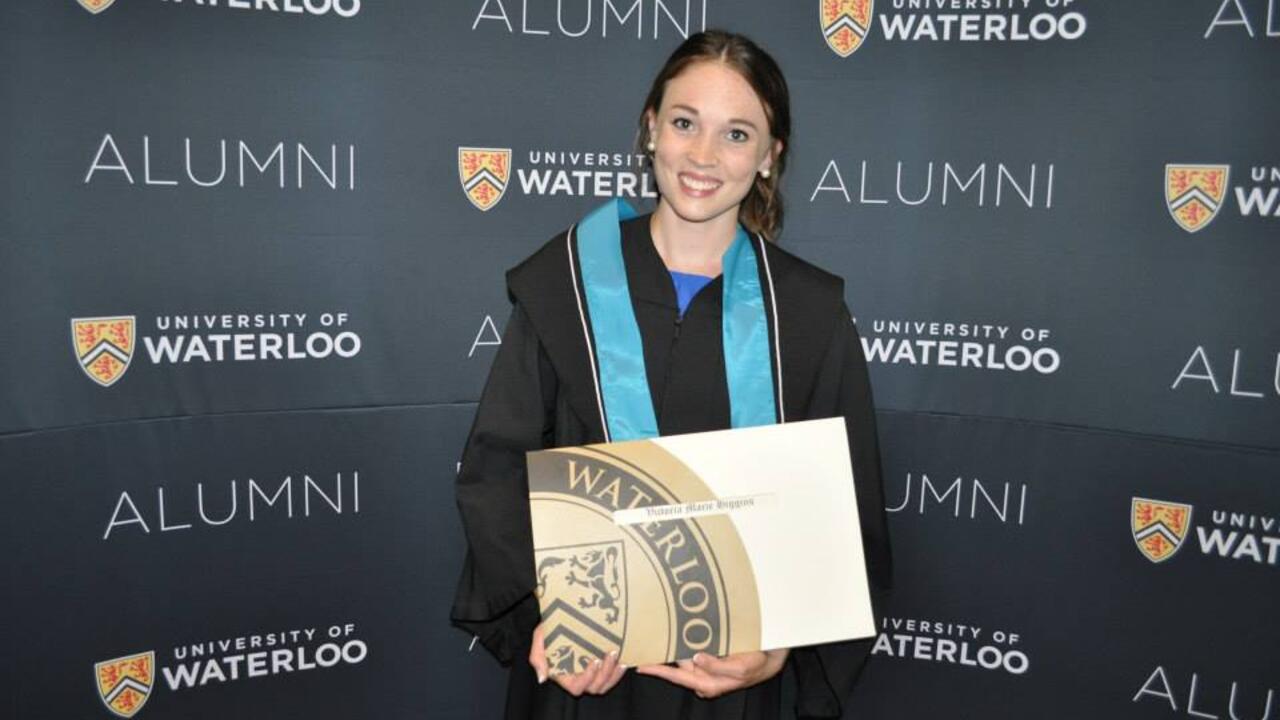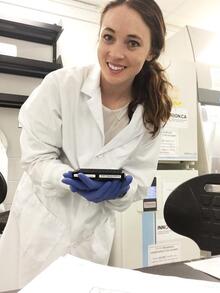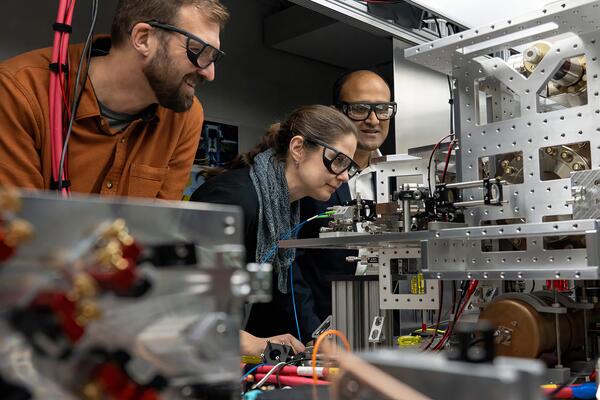
Making the grade
Victoria Higgins (BSc ’14) excelled in her coursework, but after she graduated, she realized that she learned her most valuable lessons outside of class.

Victoria Higgins (BSc ’14) excelled in her coursework, but after she graduated, she realized that she learned her most valuable lessons outside of class.
By Victoria Higgins (BSc ’14) AlumnusOne moment you’re studying and test-taking with a goal of getting that A. The next moment you’re responding to physicians and trouble-shooting spurious lab results with a goal of providing quality patient care.
How do you adjust to these new responsibilities? How do you prepare for this new role?
I completed my Bachelor of Science at Waterloo. Academically, this time was filled with attending lectures and labs, reading textbooks and regurgitating information on exams. My goal was to learn the material, meet deadlines and get those As!
While gaining knowledge and getting good grades is important, perhaps even essential for your next step, only later did I realize what the most beneficial aspects of my time at Waterloo were. It was there that I first started researching in a lab. I was no longer only responsible for myself, and my goal was no longer focused on improving my personal transcript or CV. My choices, research and writing were now impacting the scientific community and directly contributing to the advancement of science. (It was also at Waterloo that I joined the Science Society and volunteered at Well-Fit. These roles required me to be a leader, provide value to a team and apply my skills to benefit others.)
 During my PhD at the University of Toronto, I certainly carried knowledge with me from Waterloo. However, I realized the true value of those years lay in the skills I gained from applying this knowledge in various contexts at a university that truly excels at fostering innovation. The work I produced was now being published in scientific journals and presented at national and international conferences. I was now impacting others, which gave me a greater sense of meaning and confidence that my abilities were valued.
During my PhD at the University of Toronto, I certainly carried knowledge with me from Waterloo. However, I realized the true value of those years lay in the skills I gained from applying this knowledge in various contexts at a university that truly excels at fostering innovation. The work I produced was now being published in scientific journals and presented at national and international conferences. I was now impacting others, which gave me a greater sense of meaning and confidence that my abilities were valued.
In my current role as a postdoctoral fellow, where I’m working to become a clinical chemist, I feel prepared to not only learn, but apply my knowledge to different (and sometimes stressful) situations. Physicians rely heavily on blood test results, in addition to other clinical information, when diagnosing a patient with a disease or deciding on an appropriate treatment regimen. As a clinical chemist you’re responsible for ensuring your lab meets quality standards and all results provided are accurate and precise. It is your role to assist physicians in ordering and interpreting results and answering important questions about their patients.
The further we progress in our careers, the more the responsibility and the higher the stakes. Imposter syndrome might start to creep in, but remember you have put in the time, you have prepared, you know how to apply the knowledge, perhaps, better than anyone.
Victoria Higgins (BSc ’14) is a graduate of the Faculty of Science. She currently works as a Clinical Biochemistry Fellow at the University of Toronto, training to become a clinical chemist.

Read more
And a new model for how quantum research is shared — opening doors for the next generation of scientists and entrepreneurs

Read more
Here are the people and events behind some of this year’s most compelling Waterloo stories

Read more
Meet five exceptional Waterloo graduate students crossing the convocation stage as Class of 2025 valedictorians
The University of Waterloo acknowledges that much of our work takes place on the traditional territory of the Neutral, Anishinaabeg, and Haudenosaunee peoples. Our main campus is situated on the Haldimand Tract, the land granted to the Six Nations that includes six miles on each side of the Grand River. Our active work toward reconciliation takes place across our campuses through research, learning, teaching, and community building, and is co-ordinated within the Office of Indigenous Relations.